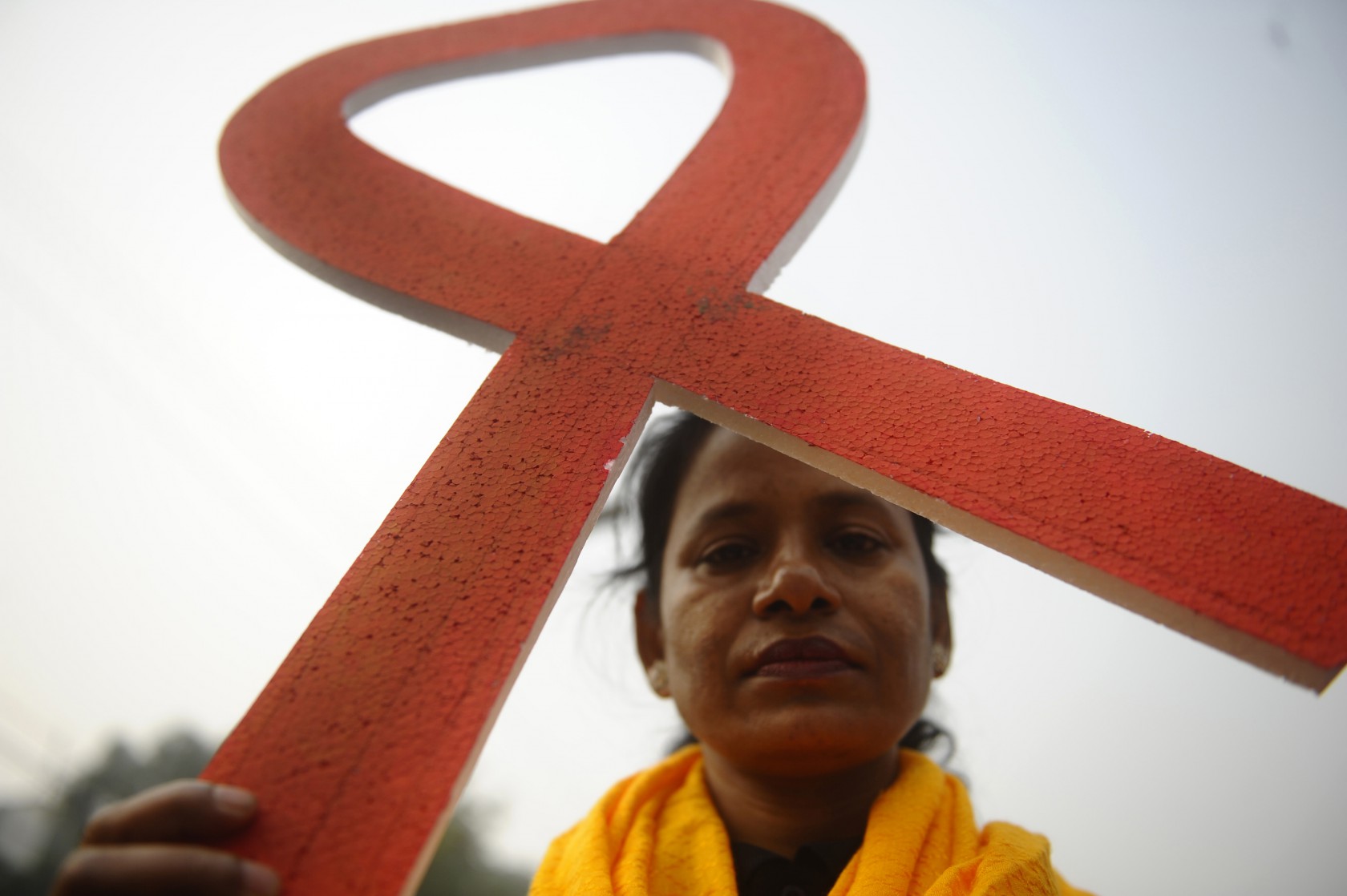
Source: Pacific Press / Getty
A French teenager infected with HIV at birth has shown the ability to control levels of the infection in her body without the assistance of antiretroviral treatment, reports CNN. This discovery is a glimmer of hope for researchers that a “functional cure” for HIV could one day be possible. “Functional cure” means that the virus would be brought down to low levels but not completely eliminated from the body.
The 18-year-old girl stopped antiretroviral treatment at about age six, but virus has remained at undetectable levels in her blood (known as remission) for 12 years.
“This is the first [time] long-term remission has been shown in children, or adolescents,” said Asier Saez Cirion from the Institut Pasteur in France, who presented the discovery this week.
The researchers believe there may be something unique in the girl’s biology that, combined with early treatment, enabled her to control the infection. However, they still don’t have any solid explanations.
She was treated with a combination of drugs after being born, and had been monitored as part of a group of child HIV patients, but stopped showing up for observations between the ages of five and six, when her family chose to stop her treatment.
Upon returning for check-ups one year later, undetectable levels of HIV were found in her blood despite her break from treatment, and the virus remains undetectable today.
Via CNN:
“We have already found it was possible in adults,” said Saez-Ciron. This work follows on from his previous research, in which 14 adults with HIV in France — known as the “Visconti patients” — were treated for HIV soon after infection but stopped taking their drugs three years later and showed no resurgence in the amount of virus found in their blood. The group are considered to be post-treatment controllers of the virus.
Today, 12 remain in control of their infection and without drugs, and they have an average of 10 years in remission.
What these adults have in common with the French teenager is the early initiation of antiretroviral treatment, thought to aid remission by preventing the formation of HIV reservoirs inside the body.
“Again, treatment was initiated very close to the period of infection,” said Saez-Ciron.
However, in practice, most adults infected with HIV aren’t diagnosed until the virus has taken hold — making early treatment a challenge. But children at risk of infection from their mothers can be identified — and treated — during pregnancy, or at birth.
This case is still a rare exception, but researchers are exploring the biology behind this ability, hoping to identify key factors in the body that could predict the possibility of remission. This form of a “cure” would result in virus levels being so low that they no longer do enough damage to the immune system to cause adverse health consequences.
RELATED POSTS
Get Tested: Today Is National Black HIV/AIDS Awareness Day
World Aids Day 2011: How To Protect Yourself From HIV/AIDS
18-Year-Old Woman’s Body Could Lead To Major Breakthrough In Curing To HIV was originally published on hellobeautiful.com
















